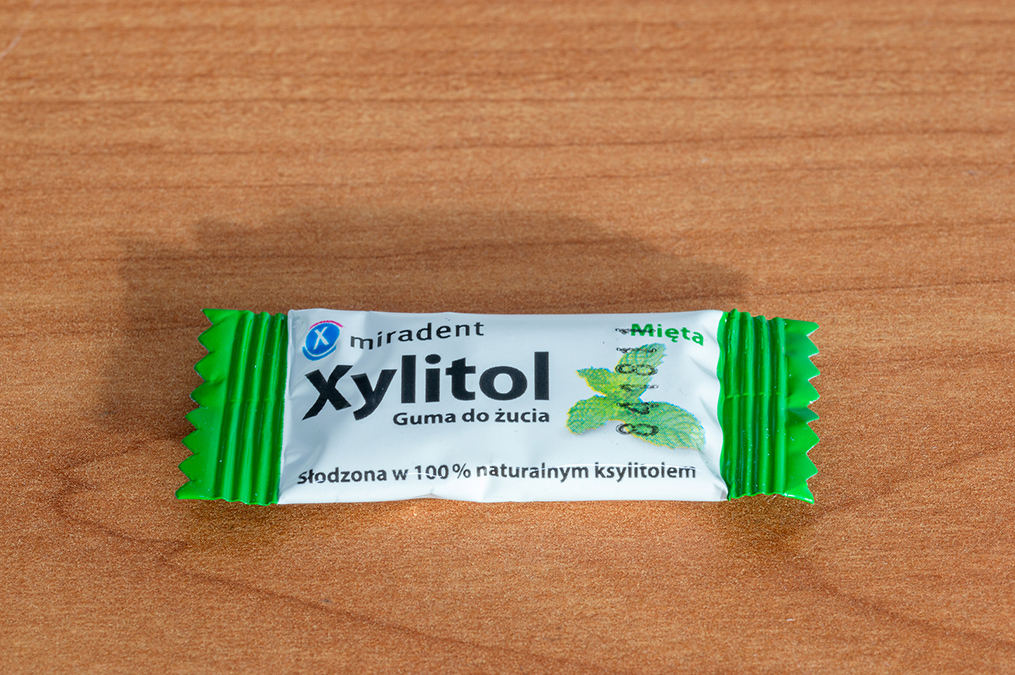 Sugary gum feeds bacteria that attack your teeth.
Sugary gum feeds bacteria that attack your teeth.
Artificially sweetened gum was supposed to be the fix… some actually make things worse.
But a new study in BMC Oral reveals that one specific sugar substitute in gums can reduce your bad bacteria (causing gum disease) by 90%.
Most sugar-free gums use sweeteners like sorbitol or maltitol. These help by increasing saliva flow and reducing acid attacks.
But xylitol, a plant-derived sweetener with a unique structure, goes a step further: it appears to directly fight harmful oral bacteria.
Researchers dug into the science, reviewing:
-
● 908 studies on oral bacteria
● 879 on plaque
● 658 on cavities
They selected only the highest-quality trials comparing xylitol gum with other sugar-free gums. In total, they analyzed:
-
● 16 studies on bacteria
● 10 on plaque
● 5 on cavities
The results were striking:
-
● 12 of 14 studies showed xylitol gum significantly reduced mutans streptococci (bad bacteria) compared to sorbitol gum
● Some reported up to a 90% reduction in bacteria
● 7 studies showed 5x to 10x decreases
● The sweet spot: at least 5g of xylitol daily, chewed 3+ times a day
For plaque:
-
● 6 of 10 studies showed xylitol gum beat sorbitol gum
● One study found 29% less plaque with xylitol while plaque increased with sorbitol
● Others showed 23–38% plaque reduction with consistent daily chewing
For cavities:
-
● 3 of 5 studies favored xylitol
● In one, children chewing xylitol gum had 86% fewer cavities
● In another, adults had 31% fewer cavities after a year of xylitol gum use
Xylitol gum isn’t a substitute for brushing or flossing, but it’s a powerful addition to your oral care routine.
And yes — industrial xylitol is chemically identical to the plant version.

 Overcoming IBD
Overcoming IBD Multiple Sclerosis
Multiple Sclerosis Banishing Bronchitis
Banishing Bronchitis Gum Disease Gone
Gum Disease Gone Overcoming Onychomycosis
Overcoming Onychomycosis Neuropathy No More
Neuropathy No More The Prostate Protocol
The Prostate Protocol Brain Booster
Brain Booster
 Ironbound
Ironbound
 Solution for Shingles
Solution for Shingles
 The Bone Density Solution
The Bone Density Solution
 The Ultimate Healing Protocol
The Ultimate Healing Protocol
 The Parkinson's Protocol
The Parkinson's Protocol
 The Chronic Kidney Disease Solution
The Chronic Kidney Disease Solution
 Overthrowing Anxiety
Overthrowing Anxiety The Fatty Liver Solution
The Fatty Liver Solution The Hypothyroidism Solution
The Hypothyroidism Solution
 The End of Gout
The End of Gout The Blood Pressure Program
The Blood Pressure Program
 The Oxigized Cholesterol Strategy
The Oxigized Cholesterol Strategy
 Stop Snoring And Sleep Apnea Program
Stop Snoring And Sleep Apnea Program
 The Arthritis Strategy
The Arthritis Strategy The Vertigo & Dizziness Program
The Vertigo & Dizziness Program The 3-Step Diabetes Strategy
The 3-Step Diabetes Strategy Hemorrhoids Healing Protocol
Hemorrhoids Healing Protocol The Erectile Dysfunction Master
The Erectile Dysfunction Master Weight Loss Breeze
Weight Loss Breeze The IBS Program
The IBS Program The Insomnia Program
The Insomnia Program The Migraine and Headache Program
The Migraine and Headache Program The Neck Pain Solution
The Neck Pain Solution The Menopause Solution
The Menopause Solution The Ejaculation Master
The Ejaculation Master The TMJ Solution
The TMJ Solution The Acid Reflux Solution
The Acid Reflux Solution The Fibromyalgia Solution
The Fibromyalgia Solution The Psoriasis Strategy
The Psoriasis Strategy